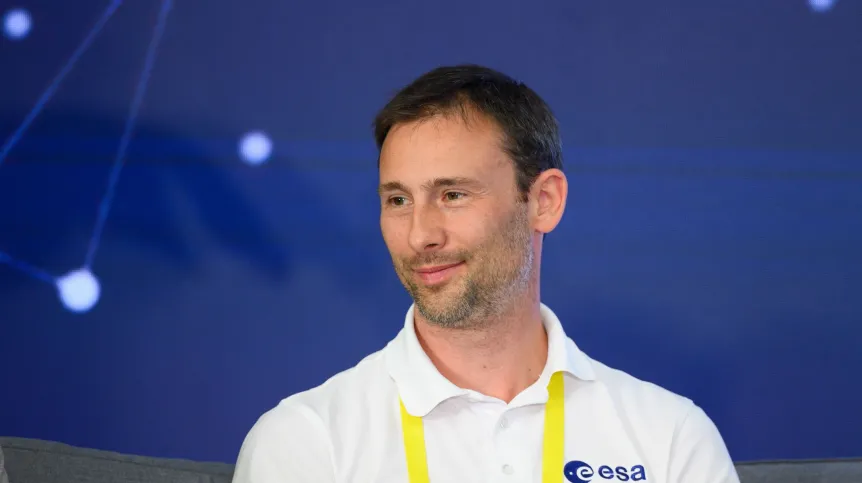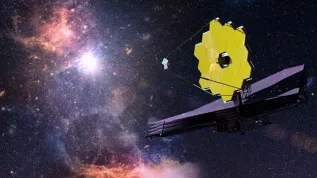
Before leaving for the International Space Station, the Polish astronaut will learn how to run experiments in the laboratory. The biological laboratory, modelled on the one on the ISS, is located at the German Space Agency (DLR) in Cologne.
According to the agreement between the European Space Agency (ESA) and Polish scientific institutions and companies, the list of experiments to be performed by Sławosz Uznański in orbit includes two biological experiments.
The first of them, called SPACE VOLCANIC ALGAE, will concern volcanic microalgae - their ability to survive and adapt in space conditions. The research conclusions will have applications in future space missions and space medicine. The start-up Extremo Technologies is responsible for this part of the Polish mission to the ISS.
The second biological experiment, called YEAST TARDIGRADEGENE, will be carried out by a consortium of the University of Szczecin, the Adam Mickiewicz University in Poznań and the University of Silesia in Katowice. The survival of genetically modified yeast (enriched with tardigrade protein) in microgravity conditions will be tested on the International Space Station. Researchers want to determine the possibilities of using them as biofactories during space travel, on Mars or the Moon.
In the biological laboratory at the German Space Agency (DLR) in Cologne, Uznański will learn how to run scientific experiments before flying into space.
Before a scientific experiment is performed on the International Space Station, it must be properly prepared and is subject to the entire analysis process in European laboratories. The European Space Agency (ESA) works closely with DLR.
'The biological laboratory at the German Space Agency is exactly the same as the one located on the International Space Station. Astronauts learn how to use individual devices in the laboratory before they go to the ISS', says Jerzy Żywicki, who has been an employee of DLR for over 20 years. He adds that Uznański will train in this laboratory.
In one of the buildings of the German Space Agency (DLR), which houses the space experiment centre and the space flight control centre, DLR ground employees have 24-hour contact with astronauts on the ISS. Astronauts are constantly visible on the monitors and can contact scientists on Earth at any time to dispel any doubts concerning the next steps in scientific experiments.
'We know exactly what a specific astronaut will be doing at what time, and what experiment they will be involved in. We also know when they will sleep', says Żywicki, responsible for communication at DLR.
He points out that biological experiments carried out in orbit including those on the reproduction of cells or bacteria, are significant because these cells behave completely differently in microgravity conditions. 'Cancer cells grow very quickly in weightlessness, much faster than here on Earth. The experiment conducted in space allows us to understand this entire mechanism', Żywicki says. Based on the results of these studies, modern medicines may be developed over time.
Żywicki also mentions the components of the Columbus module, which belongs to ESA and where Sławosz Uznański will spend most of his time during his stay on the ISS.
PAP - Science in Poland, Urszula Kaczorowska
uka/ bar/ mow/ kap/
tr. RL













